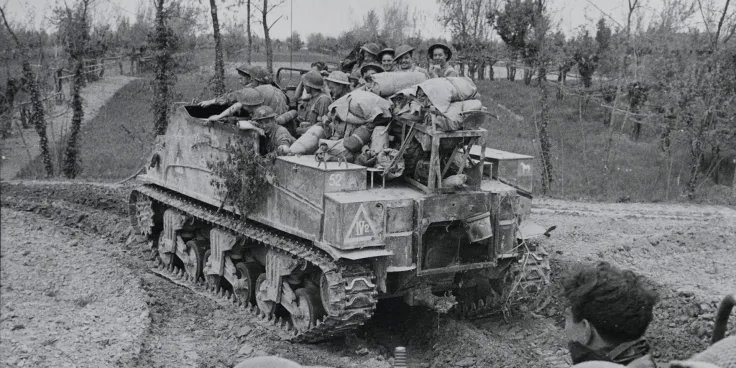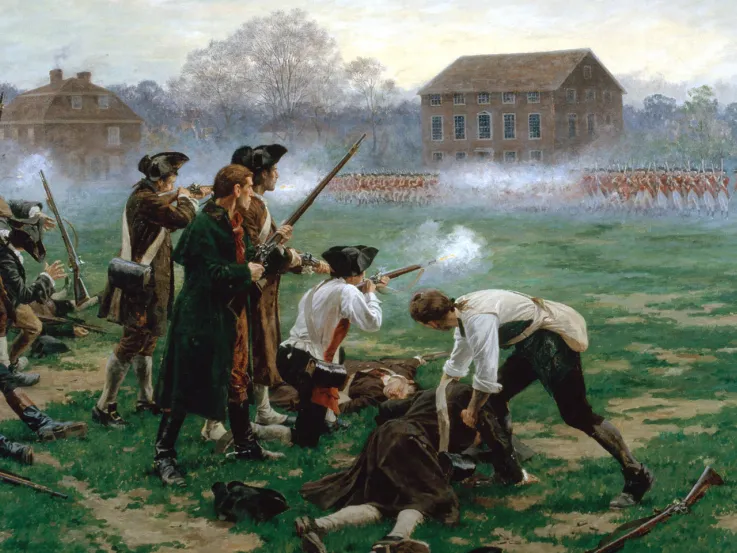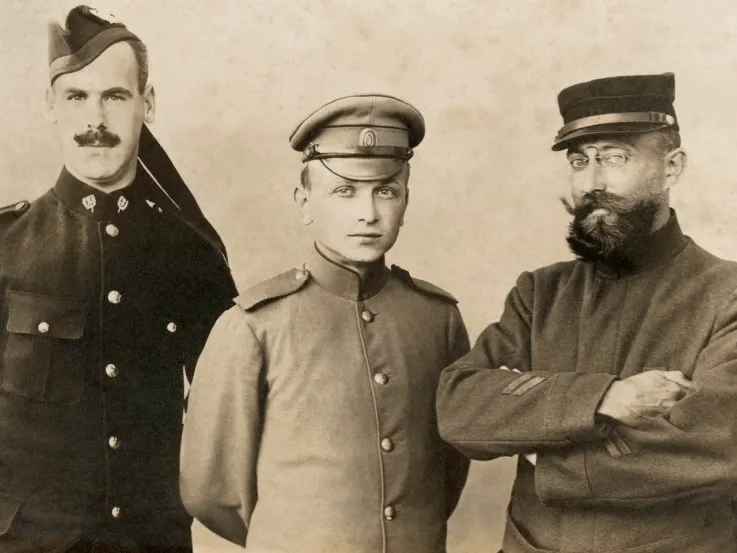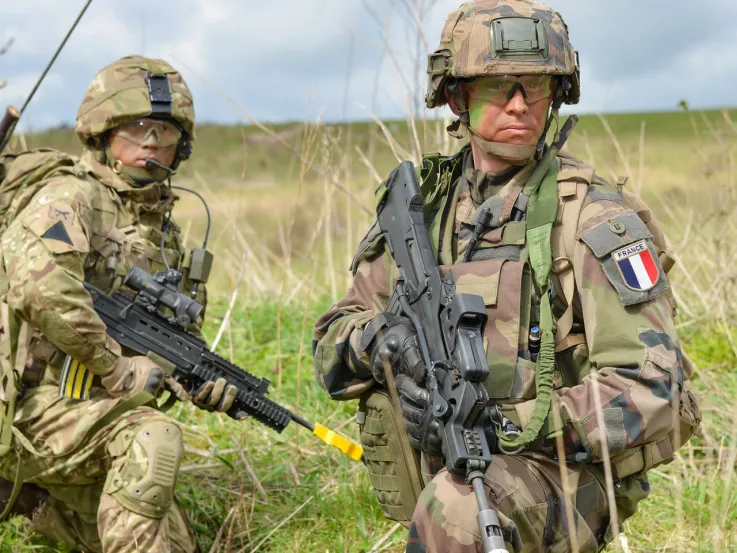Explore

War and Peace
On This Day: April 1945
In April 1945, British and Allied forces advanced through Germany and uncovered disturbing evidence of the Holocaust. Meanwhile, the Spring Offensive in the Mediterranean brought about the liberation of northern Italy.
Explore by theme















